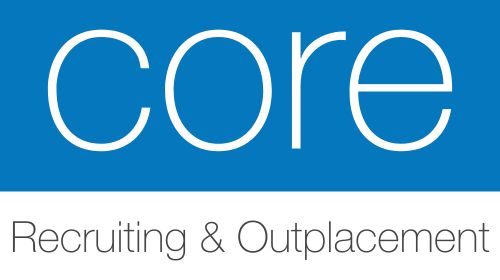
Falschgeld Online Kaufen
FollowOverview
-
Founded Date November 30, 1943
-
Sectors Construction
Company Description
Buzzwords De-Buzzed: 10 Alternative Ways Of Saying Buy Fakes

The Reality of Buying Fakes: Understanding the Risks and Implications
In today’s consumer-driven society, the appeal of counterfeit products is more potent than ever. From designer bags to electronics, lots of individuals discover themselves tempted by the seemingly appealing costs of these knockoff items. However, the implications of purchasing fakes extend beyond mere economics; they incorporate legal, ethical, and social dimensions that consumers often overlook. This post intends to provide an in-depth understanding of the phenomenon of acquiring counterfeit products, exploring the risks connected with it while resolving typical concerns surrounding the topic.
What Are Counterfeit Products?
Counterfeit items are replica items that are developed to resemble and trick customers into believing they are buying authentic goods. They are typically produced without the consent of the initial brand owner and typically sold at a fraction of the rate of real products. Counterfeiting can happen throughout various markets, consisting of style, electronics, cosmetics, and pharmaceuticals.
Kinds Of Counterfeit Products
-
High-end Goods: High-end fashion items, devices, and charm items are common targets for counterfeiters. Fakes might consist of imitation designer purses, shoes, and clothing.
-
Electronics: Counterfeit electronics, including smart devices and laptops, might lack the quality and reliability of authentic posts, putting users at risk.
-
Pharmaceuticals: Fake medications position a serious hazard to public health, as they may consist of hazardous active ingredients or lack effectiveness.
-
Software application: Pirated software application can compromise user security and violates copyright rights.
The Allure of Buying Fakes
Cost Savings
Among the primary factors customers choose counterfeit products is the expense distinction. For those on a budget plan, reproductions may appear as an attractive alternative to the high price of original products.
Accessibility
Counterfeit items are frequently more available than genuine items, particularly for classes of people who can not manage luxury brands. The rise of online markets has made counterfeit products even much easier to find and buy.
Social Acceptance
In some circles, owning a counterfeit designer product can serve as a status symbol, albeit a controversial one. This practice can foster a culture where brand name representation takes precedence over authenticity.
The Risks of Purchasing Counterfeit Products
While the instant temptation to buy fakes might appear attractive, the effects can be substantial:
1. Legal Consequences
The production and sale of counterfeit items are unlawful in a lot of nations. Buying counterfeit items can expose customers to possible fines, legal action, or confiscation of illegal items.
2. Quality and Safety Concerns
Counterfeit items typically go through lax production standards. They might be made from inferior products, posing threats such as bad performance or security hazards. For example, counterfeit electronics may get too hot or malfunction, resulting in potential injuries.
3. Ethical Implications
Purchasing fake items supports dishonest organization practices. Counterfeit manufacturing adds to the exploitation of employees, typically including questionable labor practices, kid labor, and substandard working conditions.
4. Damage to Brand Integrity
The expansion of fake items undermines the effort and development of genuine brands. Brand name owners face disintegration of track record and bitcoins für Fälschungen earnings due to counterfeiters benefiting at their expense.
Frequently Asked Questions (FAQs)
Q: Are there any legal effects for purchasing counterfeit items?
While laws differ by nation, acquiring counterfeit items can sometimes bring implications such as fines or confiscation of products. It’s important to know the legal structure in your area.
Q: How can I determine counterfeit products?
Try to find:
- Misspellings: Check item labels for disparities.
- Quality Differences: Authentic items typically have higher quality ending up and products.
- Cost Too Good to be True: If the cost is significantly lower than the market value, it might be a warning.
Q: What should I do if I inadvertently buy a counterfeit item?
If a customer recognizes they have purchased a counterfeit product, they should:
- Cease Use: Stop using the product to prevent security threats.
- Report: Notify the platform or seller, and report the counterfeit to the proper authorities as required.
Q: Can I report counterfeit sellers?
Yes, customers can often report counterfeit goods to various online marketplaces, local law enforcement, and pertinent authorities, such as the International AntiCounterfeiting Coalition.
Alternatives to Buying Fakes
If people find themselves drawn to counterfeit products, thinking about options may be wiser:
1. Thrift Shopping: Purchasing pre-owned authentic products is a sustainable option. Thrift stores, consignment stores, and online pre-owned platforms can offer authentic products at decreased prices.
2. Sales and Discounts: Keep an eye out for sales, promos, and clearance occasions offered by genuine brand names.
3. Affordable Alternatives: Many companies use budget-friendly choices that catch comparable visual appeals without jeopardizing brand stability.
4. Do it yourself Projects: For those with creative abilities, making tailored products can be a pleasurable and special option to acquiring fakes.
The choice to buy counterfeit items may appear useful on the surface area, however the multifaceted risks involved– from legal effects to ethical issues– must be thoroughly thought about. In a world increasingly concentrated on sustainability and authenticity, customers have the power to make options that show their values by selecting real products or sustainable alternatives. By fostering awareness about the ramifications of such purchases, society can work towards a more ethical consumer culture that focuses on quality, security, and integrity.
